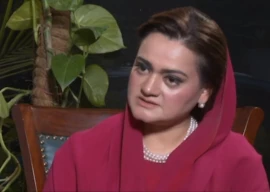
India and Pakistan have no alternative to peaceful coexistence and a shared future of prosperity lies ahead of us in our relations. This was stated by Professor Najeeb Jung, the Vice-Chancellor of Jamia Millia Islamia, Delhi, speaking at a roundtable discussion here on Thursday.
Titled “Indo-Pak Bilateral Relations and India’s Search for Balance”, the discussion was organised by the Islamabad-based think-tank, Jinnah Institute (JI), as part of its “Distinguished Speaker Series, an Indo-Pak Track-II initiative.”
While highlighting the track-II diplomacy and people-to-people contact, Prof Jung stressed on politicians to step forward and take the peace talks between the two countries ahead. “They (politicians) are the most courageous people and they, not bureaucrats, should be making policies,” said the professor. He added there was no doubt that most people in India wanted cordial relations with Pakistanis.
However, he emphasised on understanding each other. The former Indian Administrative Services officer said that certain sections in the government in India were nostalgic about Pakistan as they belonged to this part of the sub-continent and naturally think they already know enough about the country. “But we (Indians) need to realise that Pakistan has moved on 65 years. Much has changed since the partition, and the same stands true for India. So we need to study each other,” said Prof Jung.
His views were seconded by the Jinnah Institute’s Executive Director Aijaz Haider, who acknowledged the dearth of Indian experts on Pakistan, or vice versa. Haider said that peace movements in both countries were unable to rise vertically and challenge the policies of their respective states. “It is the two states who have to decide the future course of our bilateral relationship,” Haider said. “And it has been seen that when the states pull back, the peace process falls apart,” he added.
After Shashi Tharoor and Mani Shankar Ayar, Professor Jung was the first Muslim scholar from India to visit Pakistan on JI’s invitation and received more questions on Indian Muslims than bilateral relations from the audience comprising former diplomats, bureaucrats, generals and journalists beside the civil society members.
Currently in India, Prof Jung said, Muslims are openly speaking for their participation in the political process and all of those capable were working in the civil service of the country. However, this proportion was higher in the southern India than in northern part of the country, mainly due to the difference in levels of education among Muslims there.
He also supported changes in curriculums in the two countries, however, stressed on arranging an enhanced contact between students and academia along with policymakers from the two countries to discuss data that was already available.
Like many others from India before him, Jung reiterated the need for change in visa regime to allow increased contact the peoples of two countries.
He was accompanied by Coordinator for Pakistan Studies Programme at Jamia Millia Islamia Dr Ajay Behera, who said practical steps were needed to bring people from both countries closer. He lamented that many existing memoranda of understanding (MoU) between Indian and Pakistani universities were non-functional.
Dr Behera acknowledged that both India and Pakistan have a youth dividend to capitalise on, and that the future economies of both the countries depend on this constituency.
Published in The Express Tribune, February 24th, 2012.
COMMENTS (1)
Comments are moderated and generally will be posted if they are on-topic and not abusive.
For more information, please see our Comments FAQ








1732617223-0/Untitled-design-(69)1732617223-0-270x192.webp)








I hope such interactions and positive posture groups become more active in improving grass root level relations between two countries. Politicians just follow where popular sentiment and decide based on that.